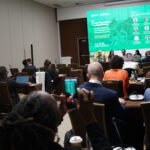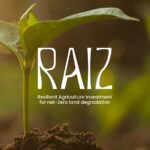COP28 Highlights from the Land and Drought Resilience Pavilion

The recently concluded COP28 brought together global leaders, experts, and innovators to address critical issues related to land and drought resilience. The Land and Drought Resilience Pavilion, hosted by UNCCD, was a focal point for discussions on collaborative efforts, innovative solutions, and inclusive strategies. Here’s a recap of key panel discussions that took place in the Pavillion during the conference of parties:
1 December – 12pm Panel: Raising Land and Drought Resilience on the Climate Agenda
The inaugural panel witnessed engaging discussions from esteemed speakers, including Dr. Ibraham, Dr. Sidy, Dr. Muralee, and Dr. Nasser. Key points emphasized collaboration between UNCCD, G20 Global Land Initiative, AGFUND, International Drought Resilience Alliance, and the Arab Bank for Economic Development in Africa. Key insights emphasized the crucial link between human life, soil, and water, stressing collaborative efforts for land restoration. The discussion included BADEA’s 2030 strategy, highlighting partnerships with youth, civil society, and women. Advocacy for financial inclusion for small farmers, especially women, and G20’s plan for a 50% reduction in degraded land by 2040 were outlined, underscoring the need for private sector involvement and university commitment.
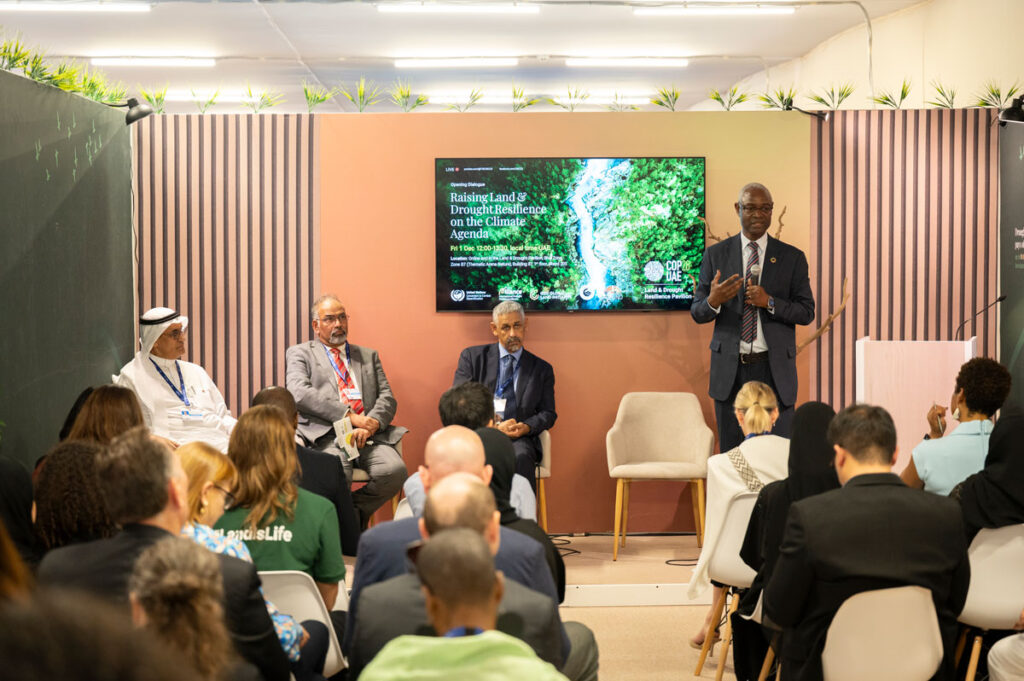
2 December – 12pm Panel: Getting to One Billion: Scaling up Land and Restoration Initiatives
This panel delved into the challenges and opportunities in scaling up land restoration initiatives. Dr. Muralee highlighted G20’s ambitious goal of restoring 50% of land by 2030 but emphasized the ongoing challenges in achieving this target. Key takeaways encompassed successful land restoration efforts in Mongolia, Korea, Senegal, Sri Lanka, and Uganda, as well as the crucial role of private sector contributions and partnerships. The World Economic Forum’s initiatives to fortify businesses for land restoration and the importance of economic returns for encouraging private sector investment in sustainable development solutions were also emphasized.
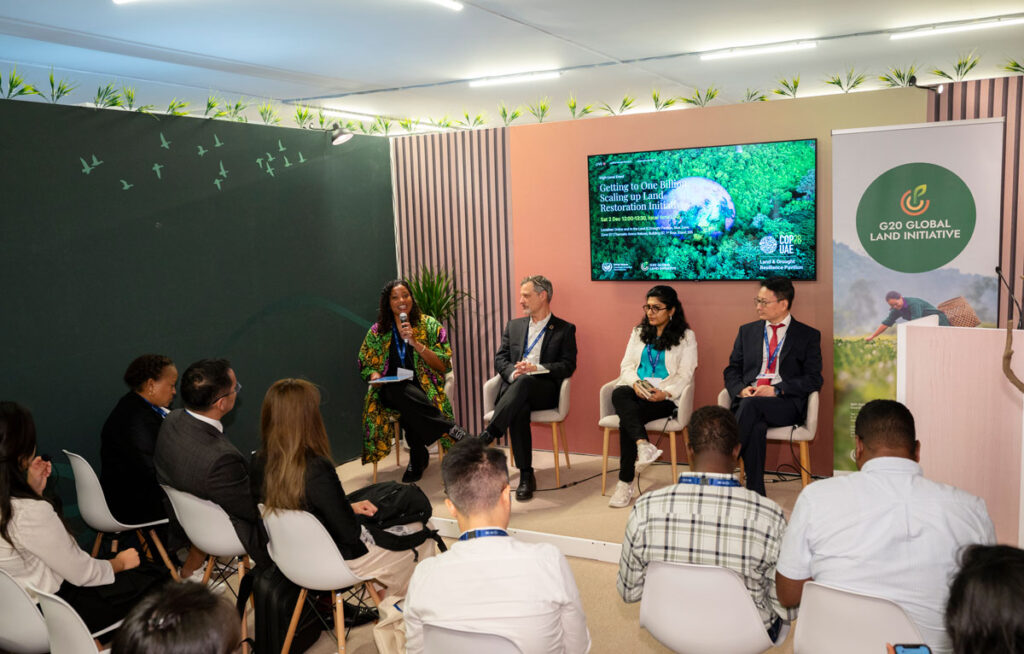
2 December – 2pm Panel: Unlocking Financial Pathways for Tropical Forest Restoration
This panel focused on financial strategies for tropical forest restoration, featuring speakers from Brazil, re.green, COP16, and various international organizations. Key points discussed include Brazil’s pledge to restore 12 million hectares of land by 2030, highlighting the involvement of for-profit companies in implementing large-scale and cost-effective restoration methods. The panel also addressed challenges related to incentives, law enforcement, and the establishment of transparent monitoring systems.
8 December – 2pm Panel: Nurturing Roots: The Importance of Integrating Land Restoration in Schools
Highlighting the significance of integrating land restoration into school curricula, this panel featured insights from global school programs, vegetation scientists, and student ambassadors. Key discussions revolved around the impact of global school programs in educating teachers and students on sustainable development. The incorporation of the Miyawaki method, known for fast-growing forests, into school practices was highlighted. Additionally, insights were shared from a GEMS student ambassador, focusing on initiatives that connect sustainability, climate awareness, and student engagement.
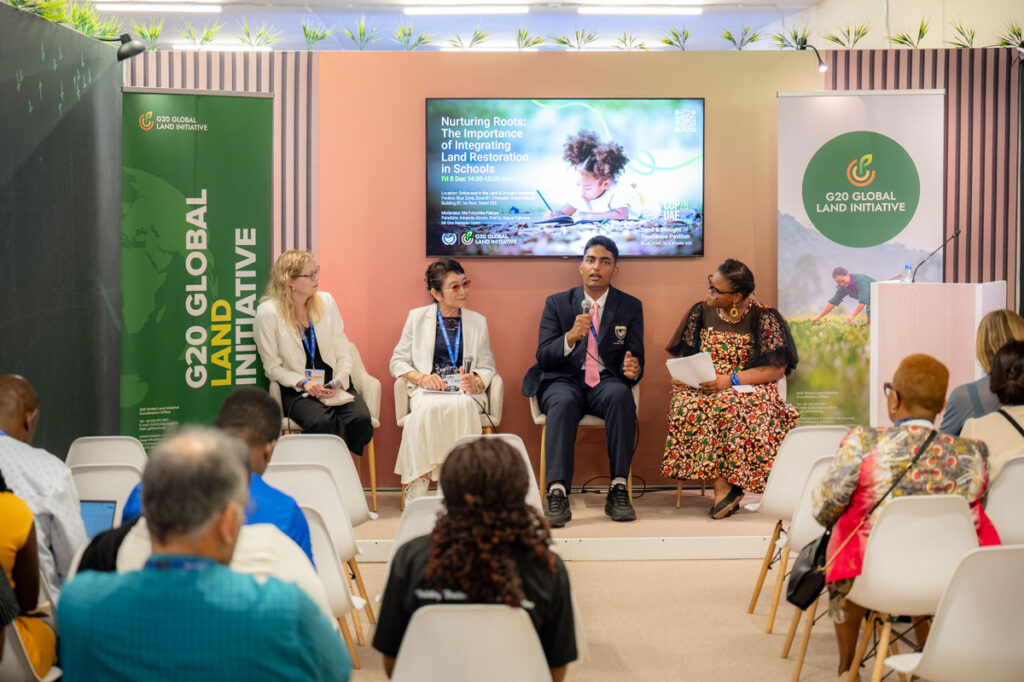
8 December – 4:30pm Panel: Empowering Youth Ecopreneurs for Gender-Inclusive Land Restoration
This panel focused on the challenges faced by young ecopreneurs in the field of land restoration, featuring stories from Ghana, South Africa, Madagascar, and Bangladesh. Key highlights encompassed empowering stories from young ecopreneurs in Ghana, South Africa, Madagascar, and Bangladesh, showcasing their journeys of success and resilience. The discussion delved into the pivotal role of finance, training, and policy in providing support for ecopreneurs. Furthermore, the panel explored both the challenges and successes in promoting gender-inclusive approaches to land restoration.
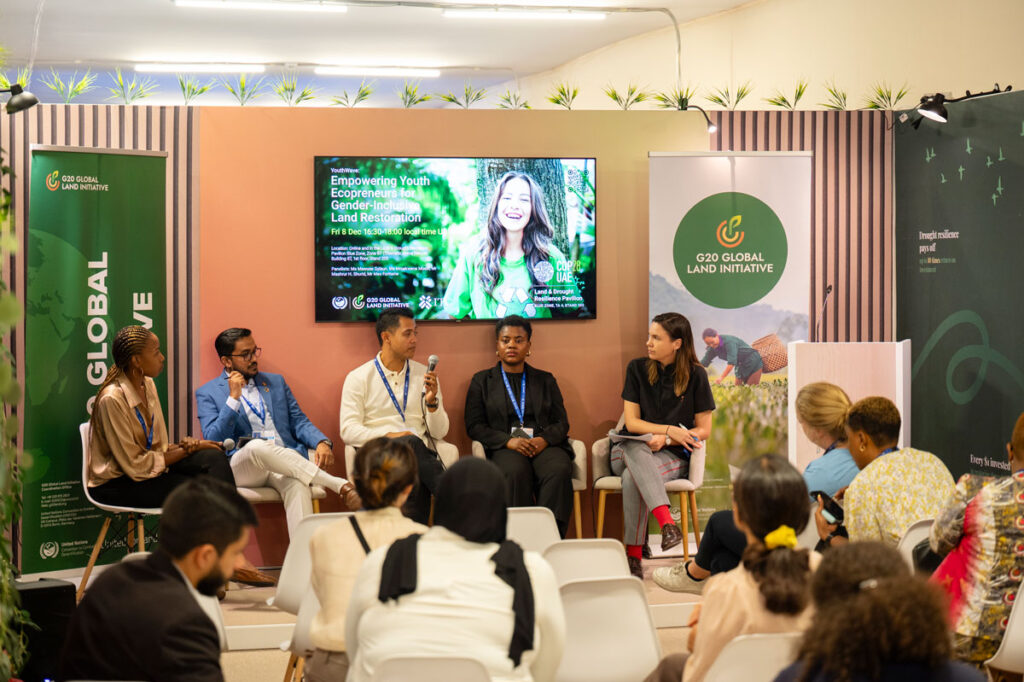
Closing Thoughts
As we reflect on these insightful panels, it is evident that collaboration, innovation, and inclusive strategies are essential for successful land restoration efforts. The G20 Global Land Initiative remains committed to fostering partnerships, empowering youth, and mobilizing communities to achieve our common goal of restoring and preserving our precious lands.
